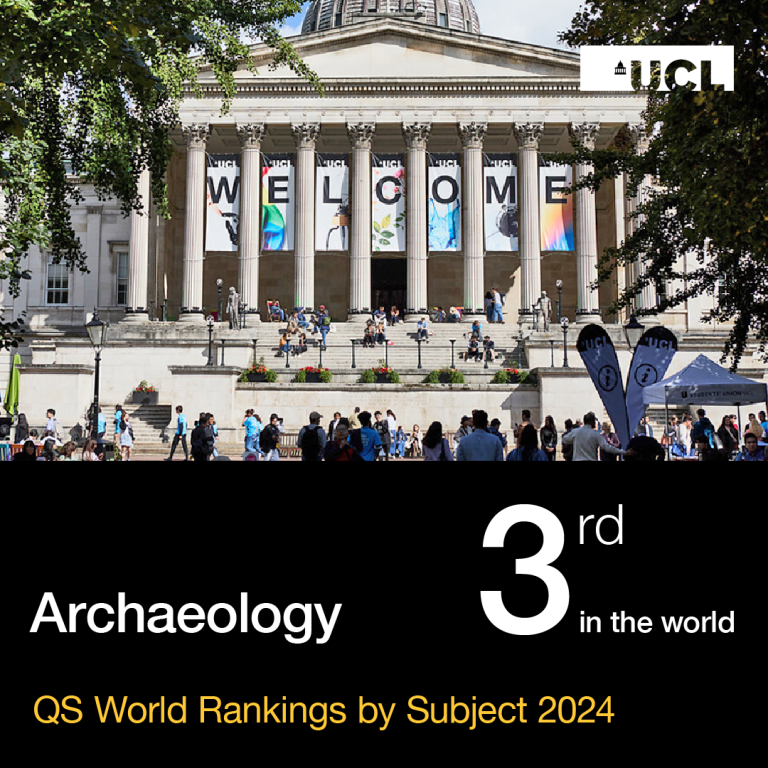This module is a general foundation and introduction for the MA in Artefacts Analysis (for which this is an obligatory Core Module).
This module is intended for practical specific specialist training. It provides short introductions to the collection, classification, recording, analysis, interpretation and publication of artefacts, with a strong focus on practical work and hands-on experience. We mainly use artefacts from the Institute's large collection, but also assemblages collected from sites in London.
The specific artefacts used are intended as examples to discuss research questions and analytical methods that could also be applied to other materials from other times or places. The aim is to integrate theoretical and practical aspects of artefact studies and consider how to identify and record the information necessary for a finds report and link this to the formulation of research questions.
Aims and Objectives
This module will introduce students to a wide range of concepts and ideas used in artefact studies, with a strong critical consideration of the academic and theoretical significance of such research, and a concern for the care, preservation and reporting of archaeological materials. More specifically the module aims:
- To provide a wide-ranging and challenging introduction to the role of artefact studies in modern archaeology
- To encourage students to think about the methods used to collect and classify materials, and how this influences the final report and the l drawn from archaeological assemblages
- To engage with current debates about the collection, interpretation, reporting and curation of archaeological materials
- To encourage an interdisciplinary approach to artefact studies which considers how to develop the relevance of artefact studies and the scientific analysis of materials for wider archaeological research.To achieve the practical knowledge necessary to document assemblages and use them to formulate and answer questions about past behaviour and social systems in a systematic manner.
- Know how to catalogue and document finds on a professional level, given further practice.
- Have some practice in identifying and dating previously unknown archaeological materials
- Have an overview of practical approaches to the study of artefacts in relation to wider archaeological research questions.
- Be able to debate the role of artefact studies in archaeology, including the potential advantages and constraints inherent within different approaches to artefact analysis
- Be able to identify the best approach to documenting a specific assemblage, given diverse research questions and available resources
Learning Outcomes
On successful completion of the module students should be able to demonstrate/to have developed the following abilities:
- Independent problem-solving based on real data sets
- The observational skills needed to identify the material details of an artefact and critically consider what this may mean in relation to the production process or life history of the object.
- To observe, or read about, analytical procedures and critically reflect on how these procedures will affect the recording and interpretation of data.
- To read and listen to a range of different approaches to a topic and to write a reasoned argument as to why they favour one or more of these.
- To identify relevant data and analytical methods with which to address specific research questions.
- To produce a catalogue and an analysis of a given assemblage, using some basic statistical methods, and produce basic distribution maps
- Be able to reflect
Teaching Methods
The module is taught via a mixture of lectures, seminars and practicals. Assessment consists of ten weekly exercises of ca. 200 words each (40%), and a portfolio of artefacts documentation (no wordcount, 60%).
Module information
- Code: ARCL0211
- Credits: 30
- Coordinator: Ulrike Sommer
- Prerequisite: This module does not have a prerequisite, but archaeological field experience is of advantage
- Handbook: open»
For registered students
- Reading list: open»
Availability
- Running in 2023-24
 Close
Close


